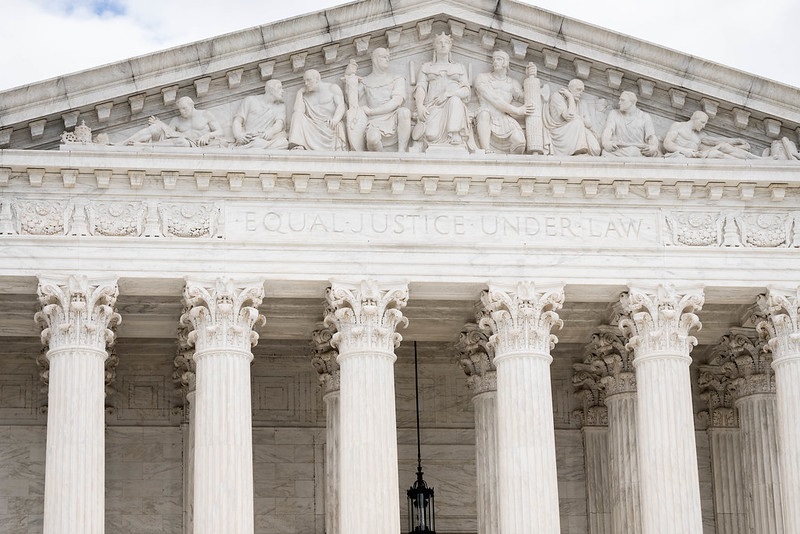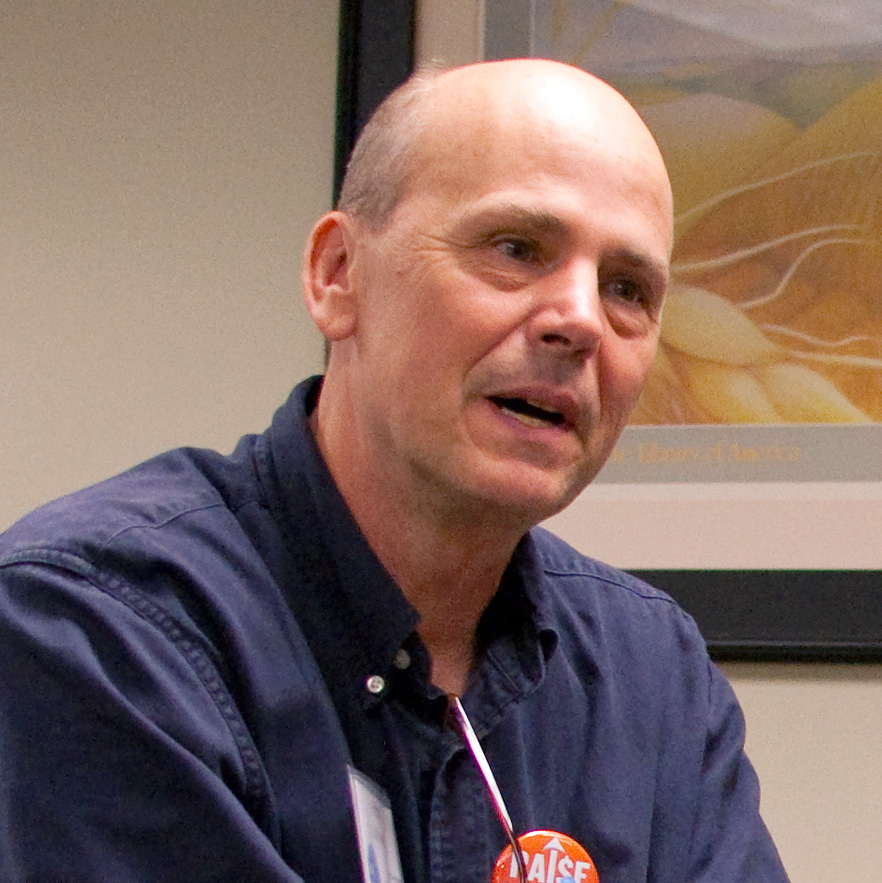
Photo: Anthony Quintano/Flickr CC
On April 22, the U.S. Supreme Court is scheduled to hear oral arguments in what is likely to be a landmark case about the criminalization of poverty and homelessness. The case, City of Grants Pass, Oregon v Johnson, involves a town that passed ordinances prohibiting people from sleeping outside in public while using bedding materials such as blankets, pillows, or sleeping bags. Those found violating the ordinances could be subject to fines and jail time.
The court’s decision will have far-reaching impacts on cities around the U.S. with growing homeless populations. If the ordinance is allowed to stand, it would basically outlaw an essential biological function for people unable to afford conventional housing—a violation of human dignity even more extreme than homelessness itself.
Fortunately, the 9th Circuit Court of Appeals blocked the town from enforcing the ordinances. The court found that punishing homeless people where no other housing options were available constituted cruel and unusual punishment, which is prohibited by the Eighth Amendment of the Constitution. Now the case is headed to the Supreme Court.
AFSC joined diverse faith-based organizations in filing an amicus brief opposing the punishment of homelessness on both constitutional and religious grounds. The brief states in part: “The universal bedrock beliefs of faith traditions have affirmed for centuries that punishing poor and homeless people for the effects of their poverty and homelessness fails to honor the holy nature of creation, and thereby fails society as a whole.”
Among the groups that joined in filing this brief were the Kairos Center for Religions, Rights, and Justice; Friends General Conference; Bend the Arc: A Jewish Partnership for Justice; Hindus for Human Rights; Interfaith Assembly on Homelessness and Housing; Metropolitan AME (African Methodist Episcopal); National Council of Jewish Women; National Clergy Council of the National Union of the Homeless; NETWORK Lobby for Catholic Social Justice; Riverside Church; Sisters of Mercy of the Americans; and the Unitarian Universalist Association.
AFSC has a long history of working on issues related to housing justice—including addressing, preventing, and attempting to end homelessness, from supporting public housing for displaced workers in the Great Depression to challenging evictions and predatory mortgage practices in the Great Recession of the 2000s and beyond.
Today, AFSC’s work for housing justice involves struggles for tenant rights; advocacy for adequate funding for housing assistance at the local, state, and federal levels; support for housing options for people dealing with issues of recovery and reentry; and the development of housing alternatives such as community land trusts and cooperatives.
However the court rules, we know that long-term solutions to problems associated with homelessness will not be found in punishment. Instead, we must make investments in affordable housing, supportive services, mental health, recovery and reentry programs, and economic policies that end poverty and promote shared prosperity for all.
Interested in learning more about the court case and how you can advocate for the rights of homeless people?
- Check out this recap of a webinar hosted by the Center on Budget and Policy Priorities, the National Low Income Housing Coalition, the National Alliance to End Homelessness, and the National Homelessness Law Center.
- Take part in a week of action April 22-28, which will be hosted by several of these organizations. In addition, several of these organizations are hosting a national week of action April 22-28 to oppose the criminalization of homelessness and advance long-term solutions. To take part, use this toolkit, which includes tips for meeting with legislators, hosting educational events, and raising awareness through social media.
